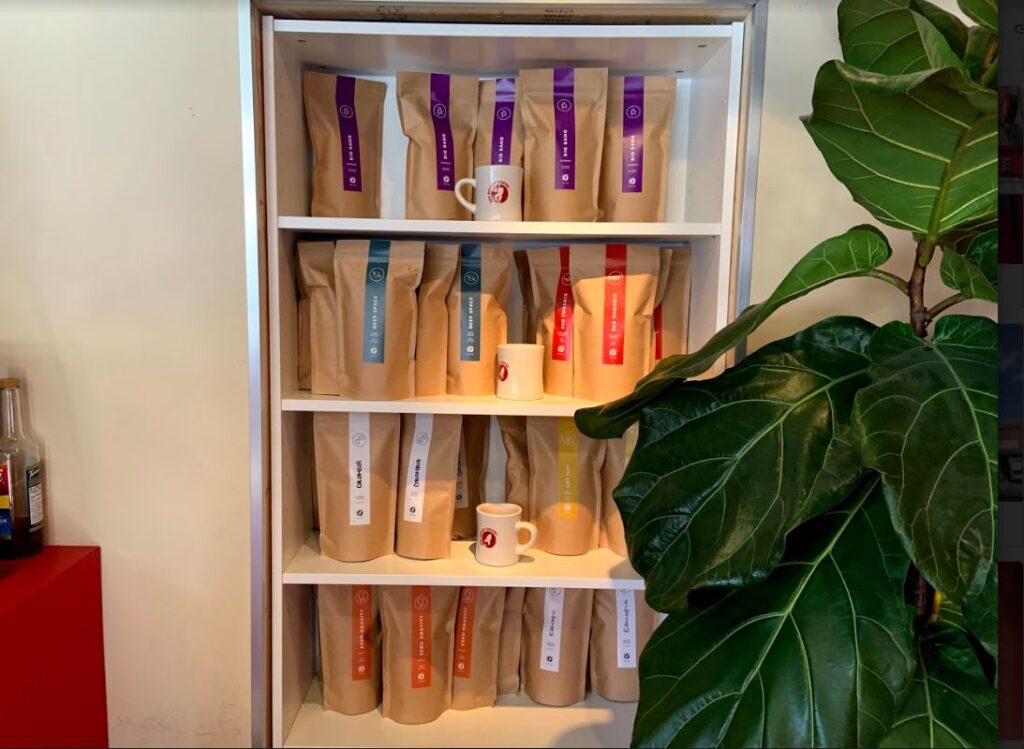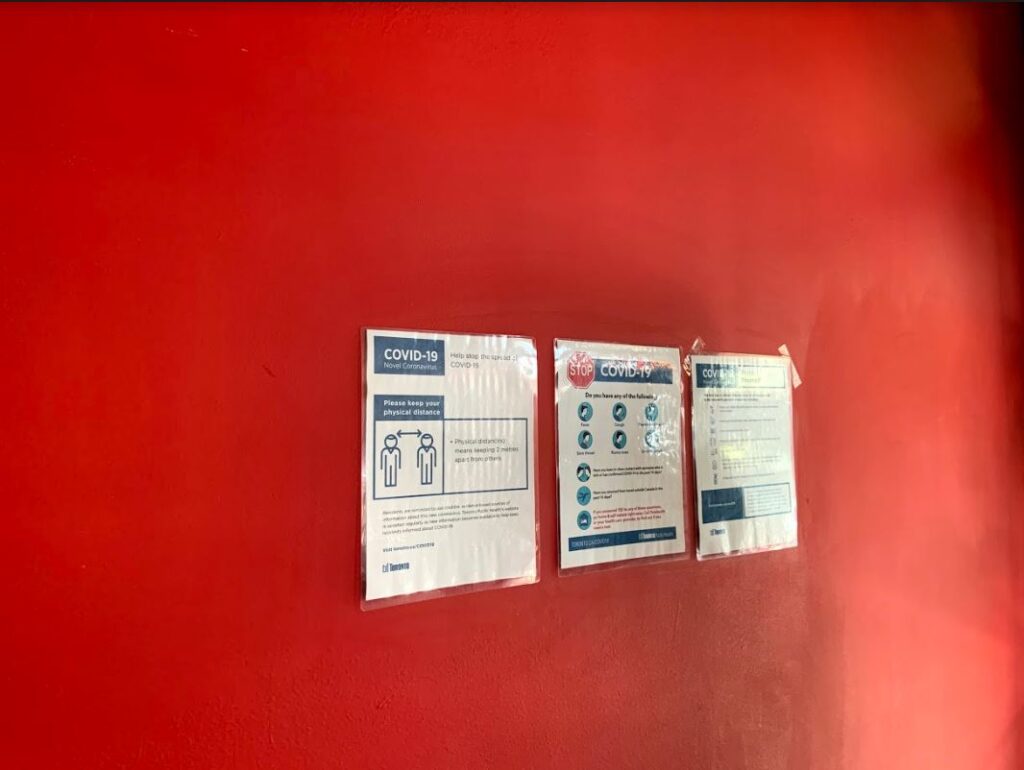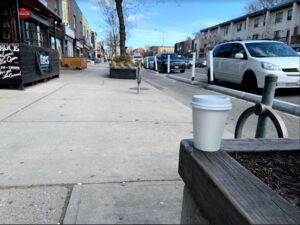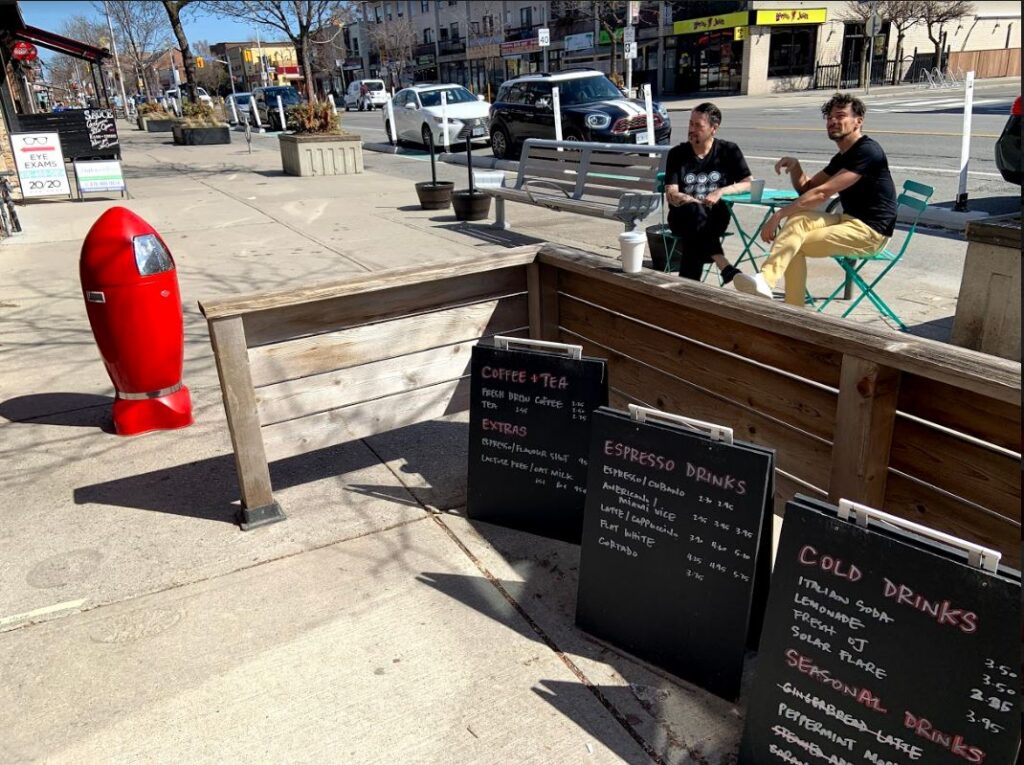The community sees the cafe’s value and won’t lose them to the pandemic
By Jack Wannan
Red Rocket Cafe doesn’t look like how it used to. The cafe used to be split into two sides. On one wall, there would be a long stretch of wooden tables accompanied by sets of metal chairs. The other side was the counter, where pastries and coffee brewing machines would coexist. In between the two areas would be a tightly packed line that often stretched to the back of the store.
Nowadays, the location is a small box. Adapting to a takeout-only format, the store is a standing-room only location that allows one customer at a time. The small, compact venue has a wall of neatly organized take-home coffee beans, a side that has posters promoting social distancing, and a counter that always has two workers behind it. Nothing else.
The cafe still sells all of their usual products, although it’s not the cafe most people know. While Red Rocket used to be a spot where people could stay and relax, it’s currently a place that customers spend two minutes in at most. This temporary change in business model due to COVID-19 was a risk for the store. As is the case with any small business these days, the challenge of prevailing amid a pandemic is an obstacle it has looked to overcome. It’s something that many other businesses won’t survive.



The Canadian Federation of Independent Business predicts that 181,000 small businesses could close across the country due to the pandemic. Numerous cafes and restaurants that have been around for decades, along with other quickly growing establishments, have already had to shutter.
After closing for a few months early in the pandemic, Red Rocket reopened in 2020 with a new business model. Focusing mainly on takeout orders, it also offered deliveries as well. What has kept the store alive thus far has been unwavering support from the community.
“Even through the pandemic, the support that we’ve had has been phenomenal,” said Billy Dertillis, who runs the location with his brother, Liako. “We shut down for two full months when the pandemic first hit. We had to very quickly pivot to online sales. The reception of our online business was very overwhelming and very encouraging.”
The cafe’s support as of late is a culmination of years of building trust and support from the community. Having been at the new location since 2011, the shop has built a regular clientele that will go there to meet others or simply get their daily drink.
Red Rocket Cafe wasn’t originally meant to be on the Danforth. Originally placed on Queen Street East in Leslieville, the brothers had to find a new home after their landlords doubled the rent price in 2011. Searching for a new location, Red Rocket eyed the Danforth as a strong location.
“I think we recognized that this was an up-and-coming neighborhood and that we had an opportunity to anchor ourselves and get a good position before things got a little more heated,” reflected Billy.
Moving on to the neighborhood over a decade ago has paid dividends for the business. The time that the cafe has been given to grow with the community has turned it into an epicentre of sorts. To Liako, Red Rocket and any local coffee shop is “an important part of the streetscape.” Studies have backed this claim up in the past, including a 2006 study from The Policy Press that claimed cafes have a “mediating role for social encounters and social ties” in communities.
“It’s basically an anchor for the neighbourhood and anyone who wants to go out,” said Liako. While he spends much less time face to face with customers these days, he’s aware of what the coffee shop means as a social setting.

Emma Alter, one of the baristas at the cafe, recognizes the importance of forming bonds with customers. While she admits she isn’t the best with names, she remembers faces, orders and the dogs that people bring with them.
Alter cites an interaction with a couple in the neighbourhood as an example of the relationships she has built with customers. The three of them bonded over the couple’s recently adopted rescue dog and Alter’s soon-to-be-born baby. One day, the couple surprised Alter with something.
After she fetched them their order, a drip coffee and peanut butter cookie for the husband and a half-sweet mocha with almond milk for the wife, she was presented with a gift. The couple gave her a blanket, pair of boots and a hat for her newborn, knowing she would soon be taking a break from work on maternity leave.
“My daughter wears that hat every time we go out. It’s nice and I get to think of the customer every time,” said Alter.
She has seen first-hand how people’s support for Red Rocket has intensified amid the pandemic. When working weekend shifts, the type of shift she likes to do the most, Alter has noticed people enter the cafe with a coffee cup from a different shop already in hand, heading in to purchase a snack. Others have visited the store as part of numerous small businesses they would hit within a day.
“They don’t want to lose us [and] we don’t want to lose us either,” said Alter.

Like their customers, the Dertilis brothers are part of the community. They are actually physically closer to their business than anyone else, as they both live above the store. This “30 second commute” as Liako put it, has its pros and cons, although it doesn’t seem to bother either of them. Their apartment’s look is similar to the cafe: small and compact, yet also cozy.
Below them, there would usually be a cafe bustling with business, conversation and connections. That isn’t the case amid the COVID-19 pandemic, although some staff members are already looking forward to that time again.
Coming out of the pandemic, Red Rocket might have a new role to play in their community. Billy envisions the post-pandemic world as one that is coming out of a “crisis of isolation.” He thinks that “the offering of food and drink” along with the connections made at the cafe will be important once things open back up. He believes loneliness is one of the many issues that existed before the pandemic but has been “accelerated” because of it.
Red Rocket already has ideas of what it needs to do to help the community in the future. Similar to the rush-hour cafe concept of “paying it forward,” the generosity that the cafe sends out has been reciprocated back, and that will likely continue.
When reflecting on what Red Rocket means to the community, Liako mentions a time when the brothers were one of the few who had the chance to help the community. When an intense storm kept the majority of the Danforth without power, somehow, Red Rocket Coffee was an exception. The cafe had power, and it was put to use. To help out the public, it offered free coffee, which Liako humbly described as “just drip coffee, nothing fancy,” and allowed people to use electricity to charge phones.
The moment represented how the cafe was a service for the community, but was more importantly a part of the community itself.
